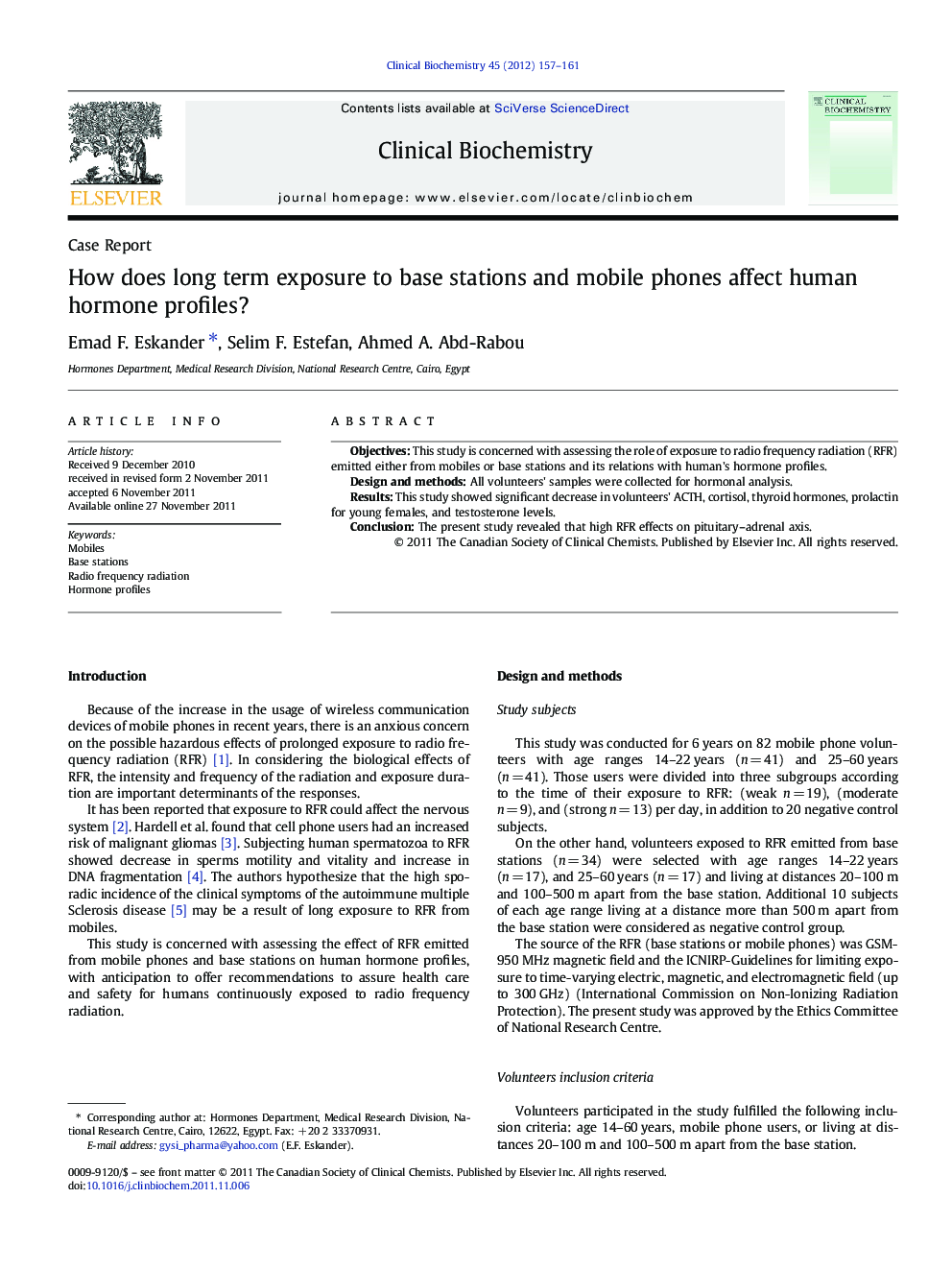| Article ID | Journal | Published Year | Pages | File Type |
|---|---|---|---|---|
| 8317988 | Clinical Biochemistry | 2012 | 5 Pages |
Abstract
⺠This study is concerned with assessing the role of long-term exposure to high radio frequency radiation emitted either from mobile phones or from base stations and its relations with human's hormone profiles. ⺠All volunteers are followed for 6 years and blood samples were collected regularly every 3 years for time intervals of 1 year, 3 years and 6 years for hormonal analysis and the blood samples were taken at 8.0 a.m. ⺠This study showed reduction in volunteers' plasma ACTH, serum cortisol levels. Also, they showed decrease in the release of the thyroid hormones especially T3. In addition, each of their serum prolactin in young females (14-22 years), and testosterone levels significantly dropped due to long-term exposure to radio frequency radiation. Conversely, serum prolactin levels for adult females (25-60 years) significantly rose with increasing exposure time. ⺠In conclusion, the present study revealed that high radio frequency radiation effects on pituitary-adrenal axis represented in the reduction of ACTH, cortisol, thyroid hormones, prolactin in young females, and testosterone levels.
Related Topics
Life Sciences
Biochemistry, Genetics and Molecular Biology
Biochemistry
Authors
Emad F. Eskander, Selim F. Estefan, Ahmed A. Abd-Rabou,
